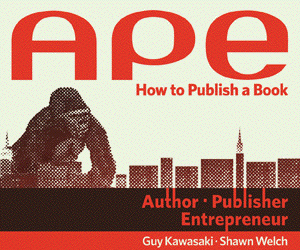
There was a new research study released earlier this year by the Cambridge University, co-authored by John M. Coates, which showed that the bullish confidence and risky attitudes displayed by traders during a market boom can be boiled down to the male sex hormone – the testosterone. Meanwhile, the jittery risk aversion on show during a market bust accompanies high levels of cortisol, the so-called "stress hormone".
Coates' research team measured the hormone levels of 17 male traders working in London's business district, taking saliva samples at 11:00 a.m. and 4:00 p.m. every day for eight days. By comparing the results with each trader's profit and loss for the day, the research team concluded that higher levels of testosterone added confidence and led to greater profit and risk taking. However, during a stressful or volatile downturn, the higher levels of cortisol are likely to make traders unwilling to take risks, even if rational analysis suggests that the market is in favorable condition.
The practical suggestion made by the research study is to make the trading floor more diverse by employing more women, or at least a wider age range of men. Although, judging by the competitive spirit of the trading floor, it seems strange to suggest that an injection of nubile young women would have a calming effect on traders' hormone levels.
In a somewhat related studies, way back in 2004, Stanford University psychology professor Brian Knutson has discovered that our primal pleasure circuits can, and often do, override our brain's frontal cortex, the so-called "seat of reason".

Knutson's research team sent student volunteers through a high-power magnetic resonance imaging machine called an fMRI. It was then that he observed that blood is rushing to the brain's pleasure center whenever students executed mock trading in equities and bonds. And it appeared on the study that the pleasure of orgasm, the high from prohibited drugs, and the craving for profits are all governed by the same neural network in the brain.
The results of Knutson's study has paved the way to the creation of a controversial field called neuroscience. It deals mainly on mapping the human brain in hopes of understanding investor behavior. Proponents of "the next great frontier on Wall Street" are hoping that one day they maybe able to develop psychoactive medicines, or neuroceuticals, that make more-profitable traders.
Meanwhile, the idea of something other than reason sometimes drives trading decisions is not new. From the tulip frenzy in Holland in the early 17th Century, where the flower bulbs traded higher than prices of gold, to the collapse of Barings and other great financial institutions, up to the speculative dot-com era in the 1990s, the recent subprime crisis, and major commodities' record-breaking rallies nowadays, all of these incidents have shown how otherwise intelligent people sometimes succumb to mass idiocy.
According to a Nobel laureate in economics, Daniel Kahneman, investors systematically make judgment errors or mental mistakes because of their "herd mentality", excessive trading, and slow reaction to unexpected news. The world famous currency speculator, George Soros, on the other hand, has a theory about why market players behave the way they do, and he calls it reflexivity.
 But according to the "Father of Modern Physics" Albert Einstein, who was quoted as saying during the time when his shares in the South Sea Co. went to a serious dive:
But according to the "Father of Modern Physics" Albert Einstein, who was quoted as saying during the time when his shares in the South Sea Co. went to a serious dive:
"It is easy to calculate the movements of heavenly bodies, than the madness of mankind."


















No comments:
Post a Comment